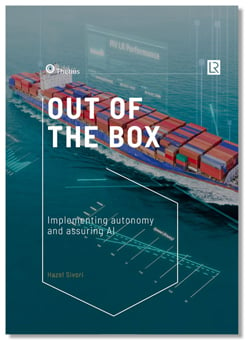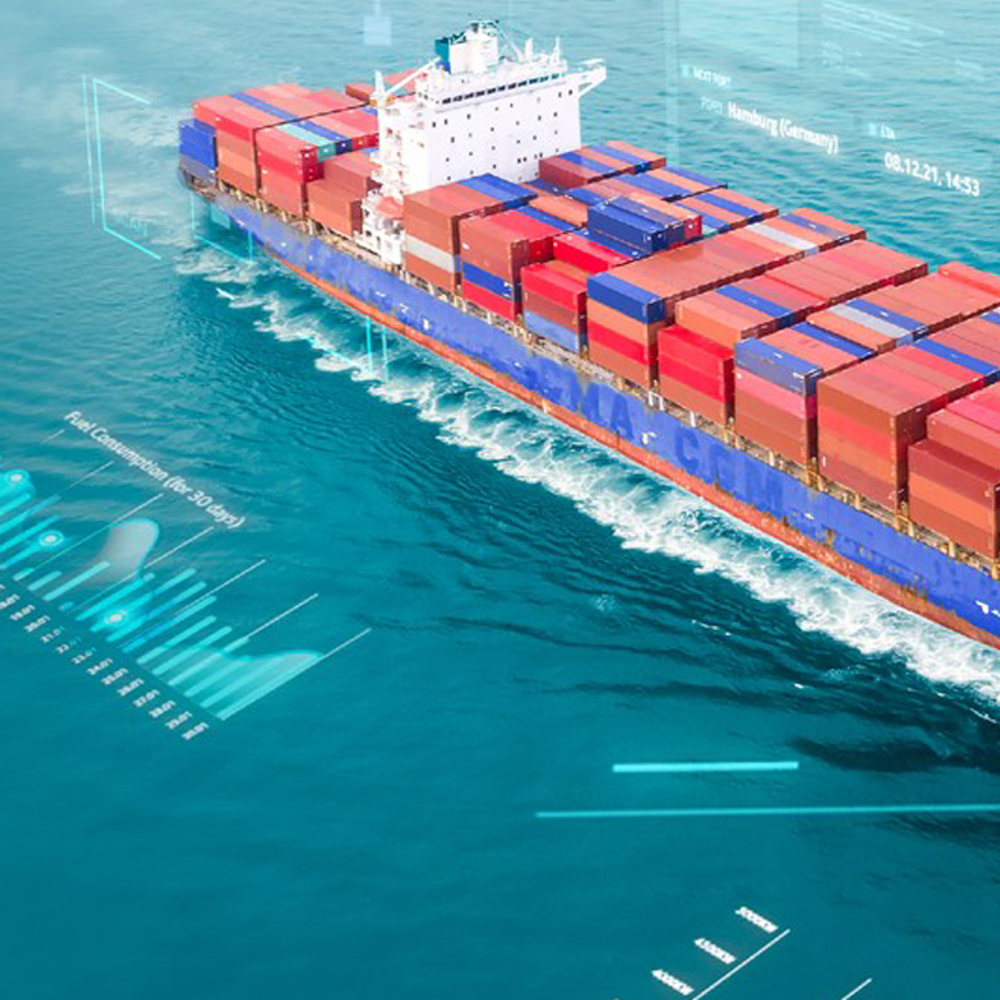Second joint LR and Thetius report on AI and Autonomy market size points to importance of investing and collaborating to prioritise safety.
A new report from Lloyd’s Register (LR) and maritime innovation consultancy Thetius advocates investment to improve the understanding of AI at all levels within maritime organisations and outlines the value of including AI and Autonomy at board level, alongside workforce education and training to raise awareness of safety and regulations of advanced technology.
 Titled ‘Out of the Box’, the joint study assesses autonomy and assurance of artificial intelligence in the maritime industry, with both markets currently estimated to be worth a joint $3.7billion in 2023, a 57% increase from 2022. The report projects that the AI-driven systems and vessel autonomy market will be worth a combined $5bn by 2028 with significant growth and crossover of both sectors expected.
Titled ‘Out of the Box’, the joint study assesses autonomy and assurance of artificial intelligence in the maritime industry, with both markets currently estimated to be worth a joint $3.7billion in 2023, a 57% increase from 2022. The report projects that the AI-driven systems and vessel autonomy market will be worth a combined $5bn by 2028 with significant growth and crossover of both sectors expected.
With digital solutions presenting challenges due to rapidly evolving technologies, such as AI-driven autonomous systems onboard modern vessels, the report calls for clarity around normal and emergency use cases, pointing to the need for traditional assurance measures to become increasingly integrated.
The report adds that as the industry moves forward, it is essential that the performance of these systems is thoroughly examined to ensure safety remains a priority regardless of rapid innovations.
In addition to pointing to the importance of investment in improving the understanding of AI at all levels within maritime organisations, this second study from LR and Thetius recommends that technology should be appropriate to user risks and calls for the creation of an independent cross-industry body to support the safe development of artificial intelligence for maritime organisations.
Dipali Kuchekar, Product Manager, Autonomous Systems and Novel Technologies, Lloyd’s Register, said: "As we move towards a future where digital solutions become increasingly integrated into the shipping industry, organisations like Lloyd’s Register will continue to adapt and evolve their assurance processes to support uptake of AI and autonomous systems to ensure that safety remains paramount. We are there to support shipowners and operators as they look at the investment case for Autonomy and AI."
The report follows last year’s study, ‘The Learning Curve - The state of artificial intelligence in maritime’, which outlined the importance of organisations prioritising safe testing environments for AI and autonomous technology. The study concluded that using solutions such as digital twin simulations and designated ships as beta testers can help to prevent incidents in real world settings.
LR has been involved in a number of projects related to AI and autonomous navigation, including awarding Digital Twin Approved Certification for Furuno’s HermAce Voyage Data Recorder (VDR) digital twin, the first verification review carried out by a classification society of a digital twin specifically designed for this purpose.
LR has also collaborated with the Alan Turing Institute to advance maritime digitalisation, providing digital technology adopters with a fast, cost-effective independent assurance and testing. As a result of the collaboration, the Alan Turing Institute’s AQ Live tools were used during the certification process for Furuno’s HermAce VDR, highlighting the power of AI as part of a safe and efficient testing procedure.
Lloyd’s Register’s digital solutions are used by more than half of the world's SOLAS fleet and provide voyage compliance, planning, ship management and vessel performance and includes products from OneOcean, Hanseaticsoft and ISF Watchkeeper, which was recently acquired jointly with the International Chamber of Shipping (ICS).
Download the study here:






